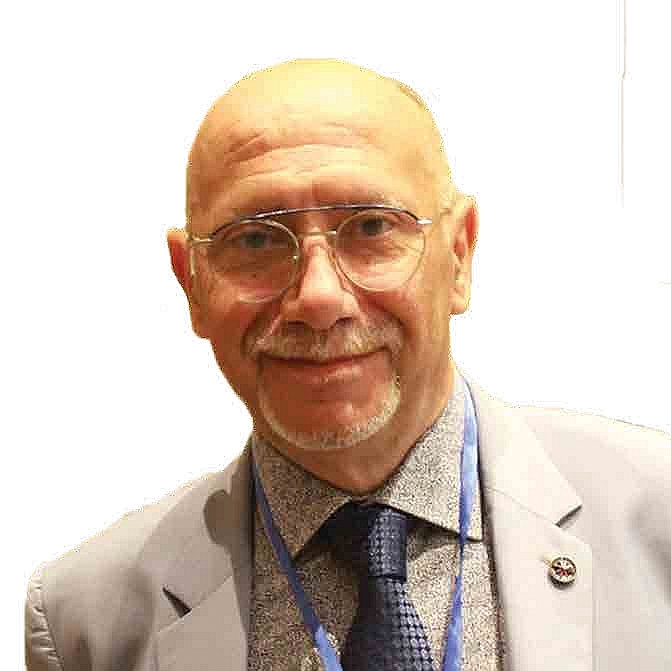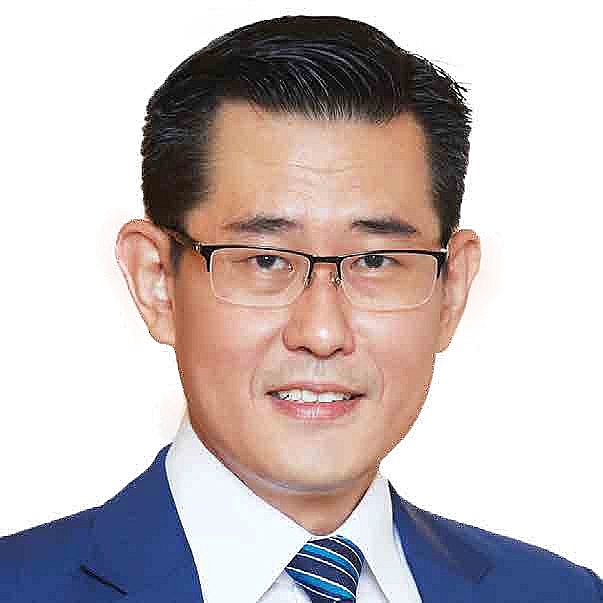 |
Guido Romagnoli - Founder and director, Inxtead Consulting
 |
As a foreign investor, I feel honoured to witness the ongoing great achievements of Vietnam and take part in the 75th celebration of the country’s independence and the 35th year of doi moi.
Reform efforts in past years have constantly improved the business climate, thereby attracting more investment for development. Coming from Europe, I have been impressed by the leapfrogging progress in the fields of tourism, telecoms, banking, transportation, real estate, healthcare, and education – all sectors that are now comparable with the world’s best.
The leadership understood that to sustain all this growth, investment in human capital is key and I am grateful for the support received to start up my company.
Through coaching and mentoring, we prepare young Vietnamese business leaders to successfully deal with foreign companies and investors especially now that ASEAN, Trans-Pacific, and EU free trade agreements are in full force.
Vietnam has learned that while it is important to look at past achievements, it is even more important to look at the future.
The international business community, especially during this time of uncertainty, expect stability in legal frameworks, taxation, and flexibility in the international movement of capital and people.
When we talk about programmes to attract international businesspeople, we often forget their families who are eventually looking to make Vietnam their second home.
In this area, Vietnam is now competing with other ASEAN countries that have designed programmes to simplify the everyday life of expat investors.
Chris Fossick - CEO JLL, Southeast Asia
 |
Since 1986, Vietnam gradually strengthened its business environment by opening up its economy. After becoming a World Trade Organization member in 2007, the economy was given a huge boost, attracting significant foreign investment. Vietnam’s strong growth has been supported by it having an export-driven economy, a young, affordable, and productive workforce, and the signing of 13 free trade agreements.
Recently, the Comprehensive and Progressive Agreement for Trans-Pacific Partnership and the EU-Vietnam Free Trade Agreement have been implemented, demonstrating Vietnam’s willingness for further global economic integration, creating new business opportunities with the reduction of tariffs.
The government’s amendments to the Law on Investment and Law on Enterprises this June also reinforce Vietnam’s position in the international market as an appealing destination for foreign investment.
According to JLL’s latest Global Real Estate Transparency Index, Vietnam rose into the “semi-transparent” tier for the first time in 2020, signalling the country’s progress in providing more transparent financial regulatory processes, accurate and timely data, and high ethical standards.
In the current environment, it will become even more crucial for the real estate industry to work collaboratively with the local government to achieve greater transparency and meet the changing expectations of investors as their goals shift in accordance with changes brought on by COVID-19.
Nguyen Thi Phuong - Deputy director general, Central Retail
 |
Vietnam has been on a steady path of socioeconomic development thanks to the country’s open policies. The services and retail sector has reported a lot of technological and quality upgrades, and consumers enjoy a growing diversity of goods and new experiences with the entrance of domestic and foreign retailers.
This is due to the transparent and equal business climate in all economic sectors, and administrative reforms have also facilitated businesses a lot, for instance by shortening the period of granting licences, simplifying document requirements and deploying the e-government system to save time and money for businesses.
Central Retail is proud to be doing business in and contributing to the socioeconomic development of Vietnam. We are fully devoted to furthering the prosperity of the country and improving the life quality of local people.
To this end, we are investing in trade infrastructure development and doing business in a variety fields, including supermarkets, food, non-food, commercial centres, as well as support the local agricultural sector and farmers to join supply chains, and ensure the sustainable consumption of local agricultural products.
We hope that our practical actions will contribute to the socioeconomic development of the country, particularly post-pandemic.
Lukas Schoeneck - CEO, thyssenkrupp Industrial Solutions Vietnam
 |
It cannot be overstated how remarkable Vietnam’s development over the last years has been. Its consistent economic growth has led many experts to forecast the country as one of the fastest-growing economies in Southeast Asia.
Despite the pandemic and given how Vietnam has been on the path towards regional and global integration, the country has shown great resilience. Its strong fundamentals combined with the strong focus on agendas like enhancing the business environment, bolstering the digital economy, and driving investments will only serve to keep Vietnam’s momentum going.
Vietnam’s vibrant economy and various opportunities are among the reasons why thyssenkrupp decided to make the country its regional headquarters for its cement business in the Asia-Pacific.
We believe this strategic move not only allows us to support local cement manufacturers level up their operations, leveraging on thyssenkrupp’s longstanding history of technology and innovation, but also brings us closer to our other customers in the region.
Moreover, through the move, we also aim to support Vietnam in achieving its goals towards environmental sustainability in the cement industry, helping companies reduce their environmental impact via the application of our solutions while having decreased operational costs and improving competitiveness.
Joseph Perucca - General director, GIVI Vietnam
 |
Vietnam has all the potential of becoming not only a country which can offer potential advantages for foreign investment due to its central location, cost of labour, and quality of manufacturing, but more importantly if directed correctly, and in view of the lessons learned from the COVID-19 pandemic which clearly highlighted that the chain of supply can easily be diverted, causing havoc and difficulty to the internal economy.
If this is purely based in manufacturing for export, it’s important that following the signature of the agreement a strong change of mentality will occur so that foreign investors are not only seen as an advantage in order to reinforce the industrial and productive side of the business, but a first step in making sure that “Made in Vietnam” become a certified label not only for workmanship but as a true and important label denoting integration, development, social advancements, strengthening of local skills, and commercial integration with the foreign economy, and that they also become an active part of the local and international markets, to make their business sustainable and integrated.
Within our structure and company philosophy, we do not see ourselves as foreign investor but we aim and work toward becoming an integral part of society, both economically and humanly and this needs support from the local authorities so that a major change will take place in the way foreign companies are seen in the local market.
A more clear and less articulated approach must be looked into in order to firstly make sure that local companies are protected, but in a way which promotes fairness, ethical behaviour in a fair and equal way, as this will certainly combine the company philosophy of many foreign investors and result in integration both economically and humanly, combining expertise, know-how, ethical and professional business views between all parties and reinforcing Vietnam’s strength in the world markets.
Aleksandrs Parfjonovs - Head of Vietnam Operations, Grindeks JSC
 |
Recently, Vietnam has been developing very rapidly, aside from the COVID-19, which obviously had an impact on all economies across the globe. Still the pharmaceutical market is growing and we are working constantly to expand our presence by bringing more international-quality pharmaceuticals to Vietnamese patients. I do feel there is great support for EU products, including pharmaceuticals, especially after signing the EU-Vietnam Free Trade Agreement (EVFTA).
The legal system is also improving, with new features like online application for pharmaceutical registration and for the submission of other reports. I think the main challenge will be decreasing the paperwork for businesses by simplifying application procedures for all kinds of products, not only pharmaceuticals and by continuing the implementation of the EVFTA to support Vietnamese companies expanding to the EU and EU companies coming to do business here, including our company, which has quite ambitious expansion plans.
Harry Loh - CEO, UOB Vietnam
 |
Despite the global economic crisis as a result of the pandemic, Vietnam has maintained positive economic growth of 1.81 per cent for the first half of 2020. The country has also remained an attractive destination for foreign investment.
These are remarkable achievements as the country has implemented strict measures, including city lockdowns and closed borders in the first half of the year to combat the spread of the pandemic.
Vietnam’s achievements are also built on its successful reforms in progressing the national economy to become a middle-income country and its strong commitment to global free trade. Vietnam has signed a number of free trade agreements, most recently with the EU, to promote cross-border business flows. Vietnam will benefit from the opportunities arising from such free trade agreements, as it welcomes more foreign investment to develop its infrastructure, including roads and ports, technology, and to further deepen the skills of its workforce.
Having operated in Vietnam for close to three decades, UOB has been helping to facilitate foreign direct investments into the country, to support the growth of local businesses and to serve the financial needs of consumers here. We remain optimistic about Vietnam’s long-term potential and the growth and development opportunities that will continue to open up for the country. VIR

Vietnam economy accelerates to get back to normal state
With the resumption of key economic sectors' activities, such as manufacturing, services and retail, Vietnam’s economy is accelerating to get back to its normal state.

Vietnam economy hit hard by COVID-19 pandemic: WB
Vietnam has been hit hard by the current novel coronavirus pandemic (COVID-19), but it will show signs of recovery in the post-coronavirus period, the World Bank said in its Vietnam Macro Monitoring report for May.